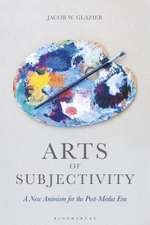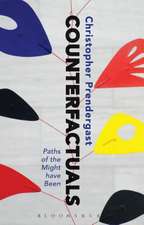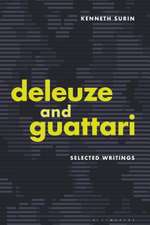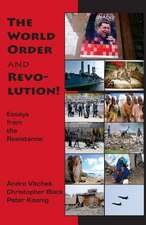Zizek on Race: Toward an Anti-Racist Future
Autor Zahi Zalloua Cuvânt înainte de Slavoj Zizeken Limba Engleză Paperback – 19 feb 2020
| Toate formatele și edițiile | Preț | Express |
|---|---|---|
| Paperback (1) | 159.53 lei 3-5 săpt. | +27.82 lei 7-13 zile |
| Bloomsbury Publishing – 19 feb 2020 | 159.53 lei 3-5 săpt. | +27.82 lei 7-13 zile |
| Hardback (1) | 496.89 lei 6-8 săpt. | |
| Bloomsbury Publishing – 19 feb 2020 | 496.89 lei 6-8 săpt. |
Preț: 159.53 lei
Preț vechi: 173.36 lei
-8% Nou
30.53€ • 32.64$ • 25.45£
Carte disponibilă
Livrare economică 27 martie-10 aprilie
Livrare express 13-19 martie pentru 37.81 lei
Specificații
ISBN-10: 135009420X
Pagini: 256
Dimensiuni: 138 x 216 x 23 mm
Greutate: 0.34 kg
Editura: Bloomsbury Publishing
Colecția Bloomsbury Academic
Locul publicării:London, United Kingdom
Caracteristici
Notă biografică
Zahi Zalloua is the Cushing Eells Professor of Philosophy and Literature and Professor of French and Interdisciplinary Studies at Whitman College, USA.
Cuprins
Foreword by Slavoj Zizek Introduction: The Post-Political is the Post-Racial Chapter 1: Liberal Multiculturalism: From "Checking Your Privilege" to "Checking Our Fantasy" Chapter 2: Deconstruction: Hospitality, Hostility, and the "Real" Neighbor Chapter 3: Postcolonialism: From the Culturalization of Politics to the Politicization of Culture Chapter 4: Critical Race Theory: The Subject Supposed to Loot, Rape, and Terrorize Chapter 5: Afro-Pessimism: Traversing the Fantasy of the Human, or Rewriting the Grammar of Suffering Conclusion: "All Lives Matter" or "Black Lives Matter"? Yes, Please! Bibliography Index
Recenzii
Against the fake neutralism of the Western liberal gaze and its obverse side of identity politics, Zahi Zalloua lends a powerfully articulate voice to Zizek's uncompromising call for a new "universality of strangers". Drawing clear-sighted connections between Black Lives Matter, Palestinian resistance, Afro-pessimism and class struggle this timely intervention develops Zizekian themes and ideas in politically bold and creative ways, directly challenging today's Left and Right orthodoxies on race and racism.
In Zizek on Race Zahi Zalloua achieves several remarkable feats. To point out just two of them: First, he provides an extremely helpful and timely account of Zizek's conceptual and political arguments on racism, bringing out their systematic nature and unique and particularly valuable core. Second, and related to Zalloua's own reading of both contemporary social antagonisms and Zizek's theory, he successfully avoids and transposes the alternative between particular identity and universalism, which has been mortifying the emancipatory struggles for far too long. The book is an absolute must for anyone who wants to think and confront the problem of racism in both its simplicity and complexity.
Descriere
Slavoj Zizek's prolific comments on anti-Semitism, Islamophobia, scapegoating, popular nationalism, the refugee crisis, Eurocentrism, the War on Terror, neocolonialism, global justice, and rioting comprise a dizzying array of thinking. But what can we pull out of his various writings and commentaries on race in the contemporary world? Is there anything approaching a Zizekian philosophy of race? Zahi Zalloua argues here that there is and that the often polemical style of Zizek's pronouncements shouldn't undermine the importance and urgency of his work in this area. Zalloua not only examines Zizek's philosophy of race but addresses the misconceptions that have arisen and some of the perceived shortcomings in his work to date. Zizek on Race also puts Zizek in dialogue with critical race and anti-colonial studies, dwelling on the sparks struck up by this dialogue and the differences, gaps, and absences it points up. Engaging Zizek's singular contribution to the analysis of race and racism, Zizek on Race both patiently interrogates and critically extends his direct comments on the topic, developing more fully the potential of his thought. In a response to the book, Zizek boldly reaffirms his theoretical stance, clarifying further his often difficult-to-work-out positions on some of his more controversial pronouncements.













